Medics and Corpsmen in the field were always busy treating fellow soldiers whether it was to save a life during a firefight or taking care of us any other time. His job was to keep us healthy and alive, many times, doing so without regard for his own safety. Twenty of them received the MOH…most were awarded posthumously. These “Doc’s” were a special breed and highly respected by their fellow soldiers. Learn some of their stories herein.
Thanks to the widespread use of helicopters for medical evacuations (known as “dust-off” missions), the wounded often waited mere minutes for transport to the nearest medical centers. A soldier or Marine in Vietnam had a 98% chance of survival if he was evacuated within the first hour of being injured — the best odds in the history of American warfare up to that time. It was the medic or corpsman who held death at bay during that crucial period.

Even when they weren’t under fire, medics and corpsmen were essential to the health and wellness of their units. In fact, they spent most of their time preventing and treating day-to-day health issues such as dehydration, malaria, dysentery, and “immersion foot.” They also treated South Vietnamese villagers, overlooking the possibility that some of them might be enemy combatants or sympathizers.

Innovations in the transportation of the injured have also impacted the level and immediacy of care for wounded soldiers. The use of medevacs in Vietnam was revolutionary in the 1960s; the use of “Flying ICUs” is considered a remarkable advance in the context of today’s military conflicts. Flying ICUs (intensive care units), are Air Force planes which have permanently installed ICU devices and a range of skilled medical professionals able to provide the highest level of care within minutes of wounding. While many advancements in medical care were introduced at a wide scale in Vietnam, military medical care continues to advance today and influence medical care in your own local hospitals.

Army Medics
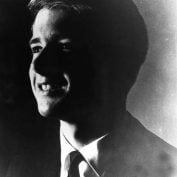
Army CPL Thomas Bennet was serving as a medic when he ran through heavy fire to assist his fallen comrades during vicious firefights from February 9-11, 1969.
Citation: For conspicuous gallantry and intrepidity in action at the risk of his life above and beyond the call of duty. Cpl. Bennett distinguished himself while serving as a platoon medical aidman with the 2d Platoon, Company B, during a reconnaissance-in-force mission. On 9 February the platoon was moving to assist the 1st Platoon of Company D which had run into a North Vietnamese ambush when it became heavily engaged by the intense small arms, automatic weapons, mortar and rocket fire from a well-fortified and numerically superior enemy unit. In the initial barrage of fire, 3 of the point members of the platoon fell wounded. Cpl. Bennett, with complete disregard for his safety, ran through the heavy fire to his fallen comrades, administered life-saving first aid under fire and then made repeated trips carrying the wounded men to positions of relative safety from which they would be medically evacuated from the battle position. Cpl. Bennett repeatedly braved the intense enemy fire moving across open areas to give aid and comfort to his wounded comrades. He valiantly exposed himself to the heavy fire in order to retrieve the bodies of several fallen personnel. Throughout the night and following day, Cpl. Bennett moved from position to position treating and comforting the several personnel who had suffered shrapnel and gunshot wounds. On 11 February, Company B again moved in an assault on the well-fortified enemy positions and became heavily engaged with the numerically superior enemy force. Five members of the company fell wounded in the initial assault. Cpl. Bennett ran to their aid without regard to the heavy fire. He treated 1 wounded comrade and began running toward another seriously wounded man. Although the wounded man was located forward of the company position covered by heavy enemy grazing fire and Cpl. Bennett was warned that it was impossible to reach the position, he leaped forward with complete disregard for his safety to save his comrade’s life. In attempting to save his fellow soldier, he was mortally wounded. Cpl. Bennett’s undaunted concern for his comrades at the cost of his life above and beyond the call of duty are in keeping with the highest traditions of the military service and reflect great credit upon himself, his unit, and the U.S. Army.
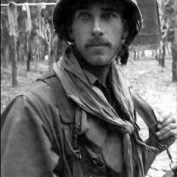
U.S. Army SP4 Donald Evans was answering calls for medical aid from men in a nearby platoon when he was killed on January 27, 1967.
Citation: For conspicuous gallantry and intrepidity in action at the risk of his life above and beyond the call of duty. He left his position of relative safety with his platoon which had not yet been committed to the battle to answer the calls for medical aid from the wounded men of another platoon which was heavily engaged with the enemy force. Dashing across 100 meters of open area through a withering hail of enemy fire and exploding grenades, he administered lifesaving treatment to 1 individual and continued to expose himself to the deadly enemy fire as he moved to treat each of the other wounded men and to offer them encouragement. Realizing that the wounds of 1 man required immediate attention, Sp4 Evans dragged the injured soldier back across the dangerous fire-swept area, to a secure position from which he could be further evacuated. Miraculously escaping the enemy fusillade, Sp4 Evans returned to the forward location. As he continued the treatment of the wounded, he was struck by fragments from an enemy grenade. Despite his serious and painful injury he succeeded in evacuating another wounded comrade, rejoined his platoon as it was committed to battle and was soon treating other wounded soldiers. As he evacuated another wounded man across the fire covered field, he was severely wounded. Continuing to refuse medical attention and ignoring advice to remain behind, he managed with his waning strength to move yet another wounded comrade across the dangerous open area to safety. Disregarding his painful wounds and seriously weakened from profuse bleeding, he continued his lifesaving medical aid and was killed while treating another wounded comrade. Sp4 Evan’s extraordinary valor, dedication, and indomitable spirit saved the lives of several of his fellow soldiers, served as an inspiration to the men of his company, were instrumental in the success of their mission, and reflect great credit upon himself and the Armed Forces of his country.
U.S. Army SP4 Joseph LaPointe Jr. sacrificed his life by using his own body as a shield in an attempt to save a wounded soldier on June 2, 1969.
Citation: For conspicuous gallantry and intrepidity in action at the risk of his life above and beyond the call of duty. Sp4 Lapointe, Headquarters and Headquarters Troop, 2d Squadron, distinguished himself while serving as a medical aidman during a combat helicopter assault mission. Sp4 Lapointe’s patrol was advancing from the landing zone through an adjoining valley when it suddenly encountered heavy automatic weapons fire from a large enemy force entrenched in well-fortified bunker positions. In the initial hail of fire, 2 soldiers in the formation vanguard were seriously wounded. Hearing a call for aid from 1 of the wounded, Sp4 Lapointe ran forward through heavy fire to assist his fallen comrades. To reach the wounded men, he was forced to crawl directly in view of an enemy bunker. As members of his unit attempted to provide covering fire, he administered first aid to 1 man, shielding the other with his body. He was hit by a burst of fire from the bunker while attending the wounded soldier. In spite of his painful wounds, Sp4 Lapointe continued his lifesaving duties until he was again wounded and knocked to the ground. Making strenuous efforts, he moved back again into a shielding position to continue administering first aid. An exploding enemy grenade mortally wounded all 3 men. Sp4 Lapointe’s courageous actions at the cost of his life were an inspiration to his comrades. His gallantry and selflessness are in the highest traditions of the military service and reflect great credit on him, his unit, and the U.S. Army.
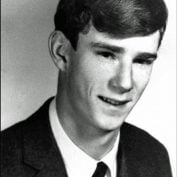
U.S. Army SP4 Thomas McMahon attempted to rescue three wounded soldiers despite heavy enemy fire on March 19, 1969. He was able to carry two of the men to safety but was mortally wounded while trying to rescue the third.
Citation: For conspicuous gallantry and intrepidity in action at the risk of his life above and beyond the call of duty. Specialist McMahon distinguished himself while serving as medical aid man with Company A. When the lead elements of his company came under heavy fire from well-fortified enemy positions, 3 soldiers fell seriously wounded. Specialist McMahon, with complete disregard for his safety, left his covered position and ran through intense enemy fire to the side of 1 of the wounded, administered first aid and then carried him to safety. He returned through the hail of fire to the side of a second wounded man. Although painfully wounded by an exploding mortar round while returning the wounded man to a secure position, Specialist McMahon refused medical attention and heroically ran back through the heavy enemy fire toward his remaining wounded comrade. He fell mortally wounded before he could rescue the last man. Specialist McMahon’s undaunted concern for the welfare of his comrades at the cost of his life are in keeping with the highest traditions of the military service and reflect great credit on himself, his unit, and the U.S. Army.
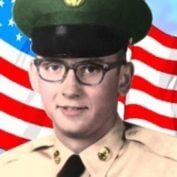
U.S. Army SP5 Edgar McWethy Jr. repeatedly exposed himself to enemy fire to treat his wounded comrades despite being wounded three times himself. He continued to help his fellow soldiers until he was mortally wounded on June 21, 1967.
Citation: For conspicuous gallantry and intrepidity in action at the risk of his life above and beyond the call of duty. Serving as a medical aidman with Company B, Sp5 McWethy accompanied his platoon to the site of a downed helicopter. Shortly after the platoon established a defensive perimeter around the aircraft, a large enemy force attacked the position from 3 sides with a heavy volume of automatic weapons fire and grenades. The platoon leader and his radio operator were wounded almost immediately, and Sp5 McWethy rushed across the fire-swept area to their assistance. Although he could not help the mortally wounded radio operator, Sp5c. McWethy’s timely first aid enabled the platoon leader to retain command during this critical period. Hearing a call for aid, Sp5 McWethy started across the open toward the injured men, but was wounded in the head and knocked to the ground. He regained his feet and continued on but was hit again, this time in the leg. Struggling onward despite his wounds, he gained the side of his comrades and treated their injuries. Observing another fallen rifleman lying in an exposed position raked by enemy fire, Sp5 McWethy moved toward him without hesitation. Although the enemy fire wounded him a third time, Sp5 McWethy reached his fallen companion. Though weakened and in extreme pain, Sp5 McWethy gave the wounded man artificial respiration but suffered a fourth and fatal wound. Through his indomitable courage, complete disregard for his safety, and demonstrated concern for his fellow soldiers, Sp5 McWethy inspired the members of his platoon and contributed in great measure to their successful defense of the position and the ultimate rout of the enemy force. Sp5 McWethy’s profound sense of duty, bravery, and willingness to accept extraordinary risks in order to help the men of his unit are characteristic of the highest traditions of the military service and reflect great credit upon himself and the U.S. Army.
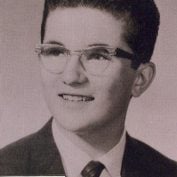
U.S. Army PFC James Monroe smothered a grenade blast with his body to protect those around him on February 16, 1967.
Citation: For conspicuous gallantry and intrepidity in action at the risk of his life above and beyond the call of duty. His platoon was deployed in a night ambush when the position was suddenly subjected to an intense and accurate grenade attack, and 1 foxhole was hit immediately. Responding without hesitation to the calls for help from the wounded men Pfc. Monroe moved forward through heavy small-arms fire to the foxhole but found that all of the men had expired. He turned immediately and crawled back through the deadly hail of fire toward other calls for aid. He moved to the platoon sergeant’s position where he found the radio operator bleeding profusely from fragmentation and bullet wounds. Ignoring the continuing enemy attack, Pfc. Monroe began treating the wounded man when he saw a live grenade fall directly in front of the position. He shouted a warning to all those nearby, pushed the wounded radio operator and the platoon sergeant to one side, and lunged forward to smother the grenade’s blast with his body. Through his valorous actions, performed in a flash of inspired selflessness, Pfc. Monroe saved the lives of 2 of his comrades and prevented the probable injury of several others. His gallantry and intrepidity were in the highest traditions of the U.S. Army, and reflect great credit upon himself and the Armed Forces of his country

U.S. Army PFC Daniel Shea dashed from a defensive position to assist the wounded and carry them to safety on May 14, 1969. In doing so, he was mortally wounded.
Citation: Pfc. Shea, Headquarters and Headquarters Company, 3d Battalion, distinguished himself while serving as a medical aidman with Company C, 3d Battalion, during a combat patrol mission. As the lead platoon of the company was crossing a rice paddy, a large enemy force in ambush positions opened fire with mortars, grenades and automatic weapons. Under heavy crossfire from 3 sides, the platoon withdrew to a small island in the paddy to establish a defensive perimeter. Pfc. Shea, seeing that a number of his comrades had fallen in the initial hail of fire, dashed from the defensive position to assist the wounded. With complete disregard for his safety and braving the intense hostile fire sweeping the open rice paddy, Pfc. Shea made 4 trips to tend wounded soldiers and to carry them to the safety of the platoon position. Seeing a fifth wounded comrade directly in front of one of the enemy strong points, Pfc. Shea ran to his assistance. As he reached the wounded man, Pfc. Shea was grievously wounded. Disregarding his welfare, Pfc. Shea tended his wounded comrade and began to move him back to the safety of the defensive perimeter. As he neared the platoon position, Pfc. Shea was mortally wounded by a burst of enemy fire. By his heroic actions Pfc. Shea saved the lives of several of his fellow soldiers. Pfc. Shea’s gallantry in action at the cost of his life was in keeping with the highest traditions of the military service and reflect great credit upon himself, his unit, and the U.S. Army.
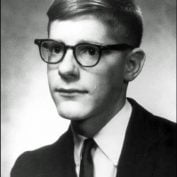
U.S. Army PFC David Winder maneuvered across bullet-swept terrain to administer aid to casualties on May 13, 1970 While attempting to reach another injured comrade, he was mortally wounded.
Citation: Pfc. Winder distinguished himself while serving in the Republic of Vietnam as a senior medical aidman with Company A. After moving through freshly cut rice paddies in search of a suspected company-size enemy force, the unit started a thorough search of the area. Suddenly they were engaged with intense automatic weapons and rocket-propelled grenade fire by a well-entrenched enemy force. Several friendly soldiers fell wounded in the initial contact and the unit was pinned down. Responding instantly to the cries of his wounded comrades, Pfc. Winder began maneuvering across approximately 100 meters of open, bullet-swept terrain toward the nearest casualty. Unarmed and crawling most of the distance, he was wounded by enemy fire before reaching his comrades. Despite his wounds and with great effort, Pfc. Winder reached the first casualty and administered medical aid. As he continued to crawl across the open terrain toward a second wounded soldier he was forced to stop when wounded a second time. Aroused by the cries of an injured comrade for aid, Pfc. Winder’s great determination and sense of duty impelled him to move forward once again, despite his wounds, in a courageous attempt to reach and assist the injured man. After struggling to within 10 meters of the man, Pfc. Winder was mortally wounded. His dedication and sacrifice inspired his unit to initiate an aggressive counterassault which led to the defeat of the enemy. Pfc. Winder’s conspicuous gallantry and intrepidity in action at the cost of his life were in keeping with the highest traditions of the military service and reflect great credit on him, his unit and the U.S. Army.
Navy Corpsmen

U.S. Navy HM3 Wayne Caron was mortally wounded on July 28, 1968, as he attempted to save wounded Marines.
Citation: For conspicuous gallantry and intrepidity at the risk of his life above and beyond the call of duty while serving as platoon corpsman with Company K, during combat operations against enemy forces. While on a sweep through an open rice field HM3 Caron’s unit started receiving enemy small-arms fire. Upon seeing two Marine casualties fall, he immediately ran forward to render first aid but found that they were dead. At this time, the platoon was taken under intense small-arms and automatic weapons fire, sustaining additional casualties. As he moved to the aid of his wounded comrades, HM3 Caron was hit in the arm by enemy fire. Although knocked to the ground, he regained his feet and continued to the injured Marines. He rendered medical assistance to the first Marine he reached, who was grievously wounded, and undoubtedly was instrumental in saving the man’s life. HM3 Caron then ran toward the second wounded Marine but was again hit by enemy fire, this time in the leg. Nonetheless, he crawled the remaining distance and provided medical aid for this severely wounded man. HM3 Caron started to make his way to yet another injured comrade when he was again struck by enemy small-arms fire. Courageously and with unbelievable determination, HM3 Caron continued his attempt to reach the third Marine until he was killed by an enemy rocket round. His inspiring valor, steadfast determination and selfless dedication in the face of extreme danger sustain and enhance the finest traditions of the U.S. Naval Service.

U.S. Navy HM2 David Ray rendered emergency medical treatment to the wounded during an enemy assault on March 19, 1969. Although seriously wounded himself, he refused medical aid and continued his lifesaving efforts defending his position and giving aid to wounded Marines. In his final act of heroism, he threw himself atop a wounded Marine when an enemy grenade exploded nearby.
Citation: For conspicuous gallantry and intrepidity at the risk of his life above and beyond the call of duty while serving as an HM2 with Battery D, 2d Battalion, at Phu Loc 6, near An Hoa. During the early morning hours, an estimated battalion-sized enemy force launched a determined assault against the battery’s position, and succeeded in effecting a penetration of the barbed-wire perimeter. The initial burst of enemy fire caused numerous casualties among the Marines who had immediately manned their howitzers during the rocket and mortar attack. Undaunted by the intense hostile fire, HM2 Ray moved from parapet to parapet, rendering emergency medical treatment to the wounded. Although seriously wounded himself while administering first aid to a Marine casualty, he refused medical aid and continued his lifesaving efforts. While he was bandaging and attempting to comfort another wounded Marine, HM2 Ray was forced to battle two enemy soldiers who attacked his position, personally killing one and wounding the other. Rapidly losing his strength as a result of his severe wounds, he nonetheless managed to move through the hail of enemy fire to other casualties. Once again, he was faced with the intense fire of oncoming enemy troops and, despite the grave personal danger and insurmountable odds, succeeded in treating the wounded and holding off the enemy until he ran out of ammunition, at which time he sustained fatal wounds. HM2 Ray’s final act of heroism was to protect the patient he was treating. He threw himself upon the wounded Marine, thus saving the man’s life when an enemy grenade exploded nearby. By his determined and persevering actions, courageous spirit, and selfless devotion to the welfare of his Marine comrades, HM2 Ray served to inspire the men of Battery D to heroic efforts in defeating the enemy. His conduct throughout was in keeping with the finest traditions of the U.S. Naval Service.
This article originally appeared on the Vietnam Veterans Memorial Fund website. Here is the direct link: https://www.vvmf.org/topics/Medics-and-Corpsmen/?fbclid=IwAR39YJd3Q_Ceu9TfYLQzfaE4ifhUtjvgQGbBBAF0RWLJFm7OD7lO-1Y5PfA
###
As a bonus addition here is a short blurb about a medic who I had the pleasure of serving with while in Vietnam. The incident described below (from VFW magazine, Aug 2017) occurred three weeks after I came home:
Courage, composure and guardian angels
Courage was part and parcel of Jess Johnson’s kit.

“Because of my naivete,” Johnson said, “I didn’t believe that I could ever get hurt.”
Time would put the Bronze Star and two-time Purple Heart recipient’s belief to the test — illustrating the importance of courage, composure, and faith.
Johnson’s experience in combat taught him that a wounded patient’s perception can tip the person into shock, a state of affairs that can lead to death. He believes a medic must give his or her patients hope. Johnson’s technique was to make a wounded soldier laugh by saying something like, “I can’t believe that you’re going home and I have to stay here.”
“If I could make my patient laugh a little bit and give him hope that he’s going to see his wife and brand new baby,” he said, “That would usually increase survivability by 50 percent. You never, ever want to say, ‘My God man, I don’t know if I can save you.’”
There’s a strange relationship between battlefield patient and combat medic or hospital corpsman, one of intimate detachment. Life and limb, you hold another human being’s fate in your hands.
“I never talked to them again after I medevac’d them,” Johnson said. “I didn’t know if they lived or died. I did the best I could.”
It’s this kind of composure that helped Johnson survive 11 months in Vietnam, many of them around the murderous A Shau Valley.
Sept. 11, 1971: Four members of the 2nd Platoon were hit early in the day in an NVA ambush. Johnson and the M60 gunner set off to find them and render aid. At the time, he didn’t realize he would exhaust his day’s medical supplies treating them.
Later that day, the platoon leader dispatched Johnson and another man down a sloping hill to a grassy area. The day was typical for the A Shau: no wind, dead calm and hot as hell. And yet patches of the grass were moving.
“I look up and there’s this air vent, in the middle of no place,” Johnson said. He’d stumbled across an NVA command bunker.
Johnson called his platoon leader. The lieutenant said a fire mission was about to be called in from the USS New Jersey. Thirty minutes later, its massive rounds began to fall. As he ran back up the hill for shelter, Johnson stepped into a fire ant mound. He bent over, yanking to free his foot.
“As I’m bending over, I hear a whoosh!” he remembered.
It was a large, lethal piece of one of New Jersey’s rounds. Had he been standing he’d have been decapitated.
It was not the last piece of providence Johnson encountered that day.
As the sunset over the valley, 2nd Platoon set out on yet another patrol. It was then he heard the voice, loud and clear and unmistakable: “Don’t take any unnecessary chances.”
“I looked around,” he said. “There was nobody there.”
Then he remembered the voice saying, “Get ready.” Moments later there’s a massive explosion. Johnson grabbed his depleted medical kit and ran toward the site.
One final time, the voice commanded, “Follow the steps.” He followed in the footsteps of his buddies to cut the chances of triggering another landmine.
Eight men lay wounded. Johnson triaged them, sorting them into three categories: those who could wait; those who needed immediate care; and those who were likely to die. One man had lost both legs above the knee, another had a broken nose and a third groped to find his eyes, one dangling from each socket. Johnson retrieved them, washed them with canteen water and re-inserted both.
“Doc” Johnson believes the voice was that of his guardian angel, shepherding him through the carnage in one piece so he could help others.
Thank you for taking the time to read this. Should you have a question or comment about this article, then scroll down to the comment section below to leave your response.
If you want to learn more about the Vietnam War and its Warriors, then subscribe to this blog and get notified by email or your feed reader every time a new story, picture, video or changes occur on this website – the button is located at the top right of this page.
I‘ve also created a poll to help identify my website audience – before leaving, can you please click HERE and choose the one item that best describes you. Thank you in advance!




Flying as a door gunner on a Huey medivac helicopter in 1965, we landed in a hot LC picking up wounded friendly troops, my job was to shoot the tree line to give us time to load the wounded. On top of the others very quickly, about a dozen. On the way back to our base, one man had his head resting on my book and asked me for some Nuc Tah (water), I said to him no Nuc Tah! He died right then resting on my boot. I will never forget that day!
LikeLiked by 1 person
This is first class info. “Doc”…………is what we referred them as……..aboard the Bon Homme Richard CVA-31. Never saw a Doc (MD)……always the Doc was a Corpsman. And many salutes to those Navy guys that did help USMC. Right hand salute. And my spouses brother was an Army Medic……..in the Nam in 1967……hand salute to him also: Thank you for these articles. Damn…….the Nam is sliding on back there in TIME. I def won’t forget as long as I live. Thank you. PD Rhodes AO3 VA-196 AD Skyraiders. Nam cruises 1964 and 1965. ________________________________
LikeLiked by 1 person
Well written tribute of these courageous young men. True hero’s. Are you aware of Airmen William Pitsenbarger, who, as an Air Force pararescue medic, repelled into a firefight from a Medevac chopper to aid the wounded after an Army company medic was wounded and evacuated? He had the opportunity to save himself and return to the chopper, but he waved off the chopper and remained on the ground. He incredibly treated and saved numerous lives, supplied ammo to the troops, and, even returned fire. He was KIA, and, later, awarded the MOH. There is a movie recently released called The Last Full Measure.
LikeLiked by 1 person
As a former combat corpsman who served in Vietnam nam 67-68 I want to thank you for your article
LikeLiked by 1 person
Very moving article. Every day was routine, until it wasn’t.
LikeLiked by 1 person
Is there a list of all CMH precipitants? It would be worth while to know these men.
How many were chaplains? corpsmen, posthumous?
How many know this recognition started during our Revolutionary War.
LikeLiked by 1 person
@barbaracvm1
– https://en.wikipedia.org/wiki/List_of_Medal_of_Honor_recipients
– http://www.cmohs.org/recipient-archive.php
LikeLiked by 1 person